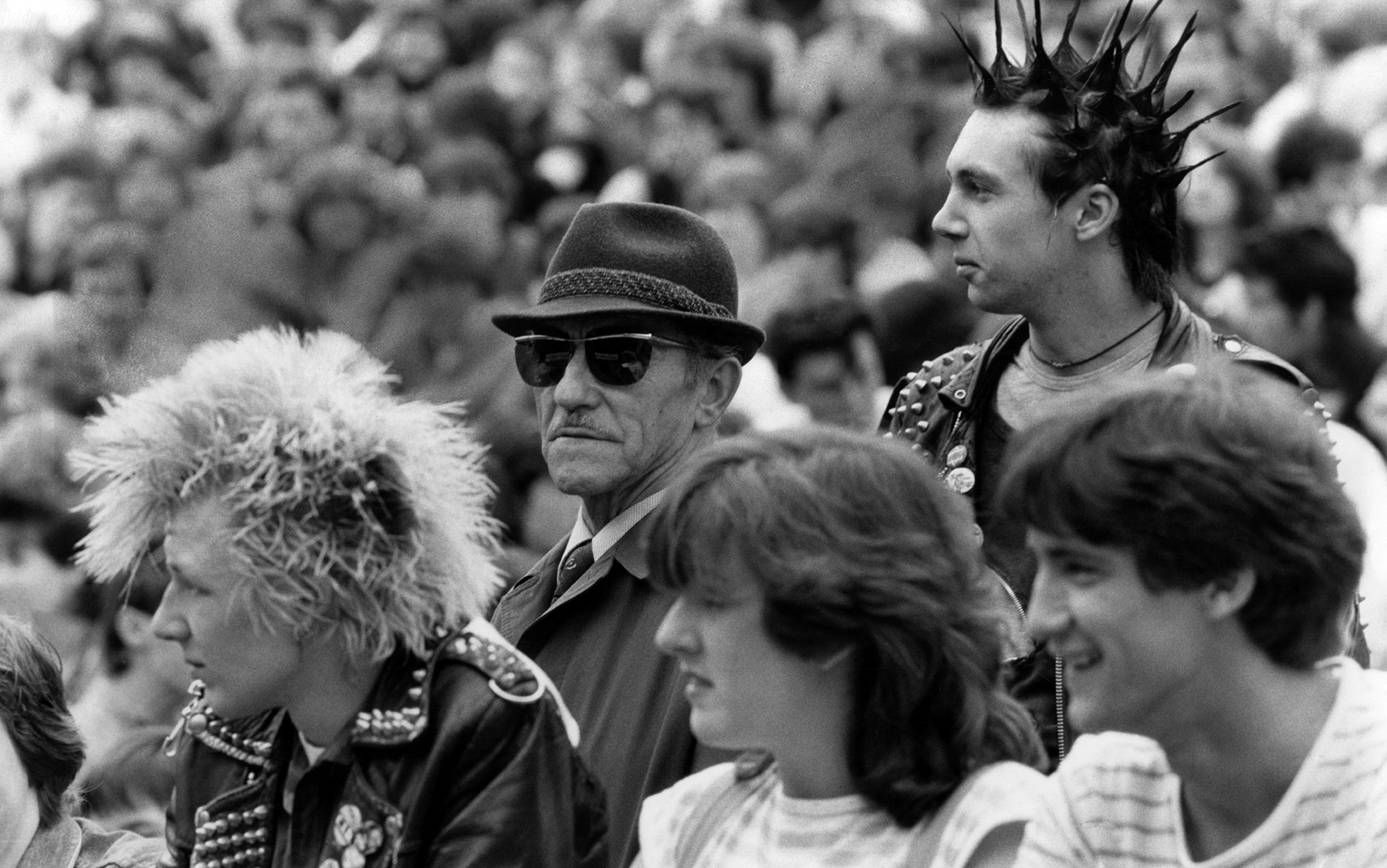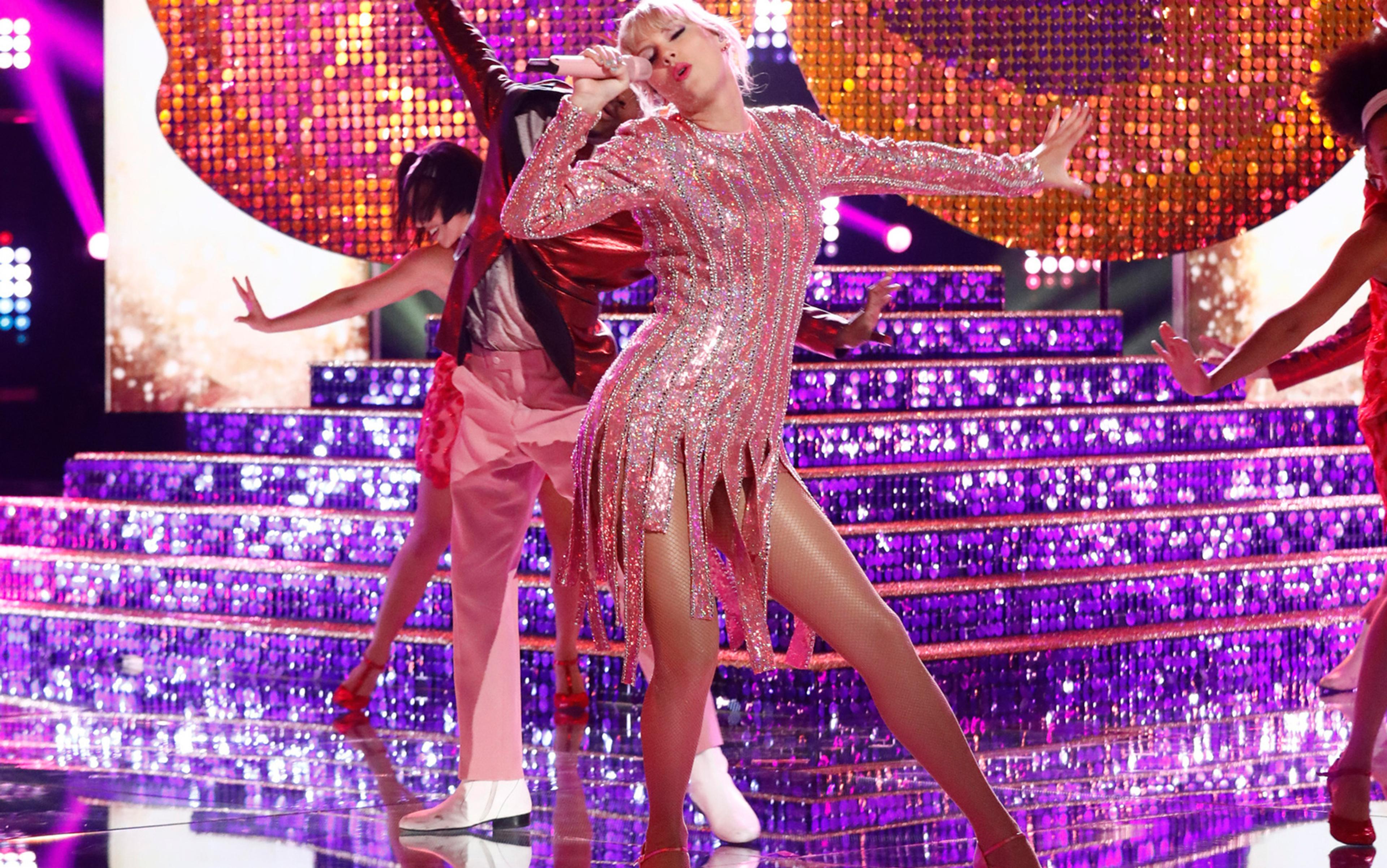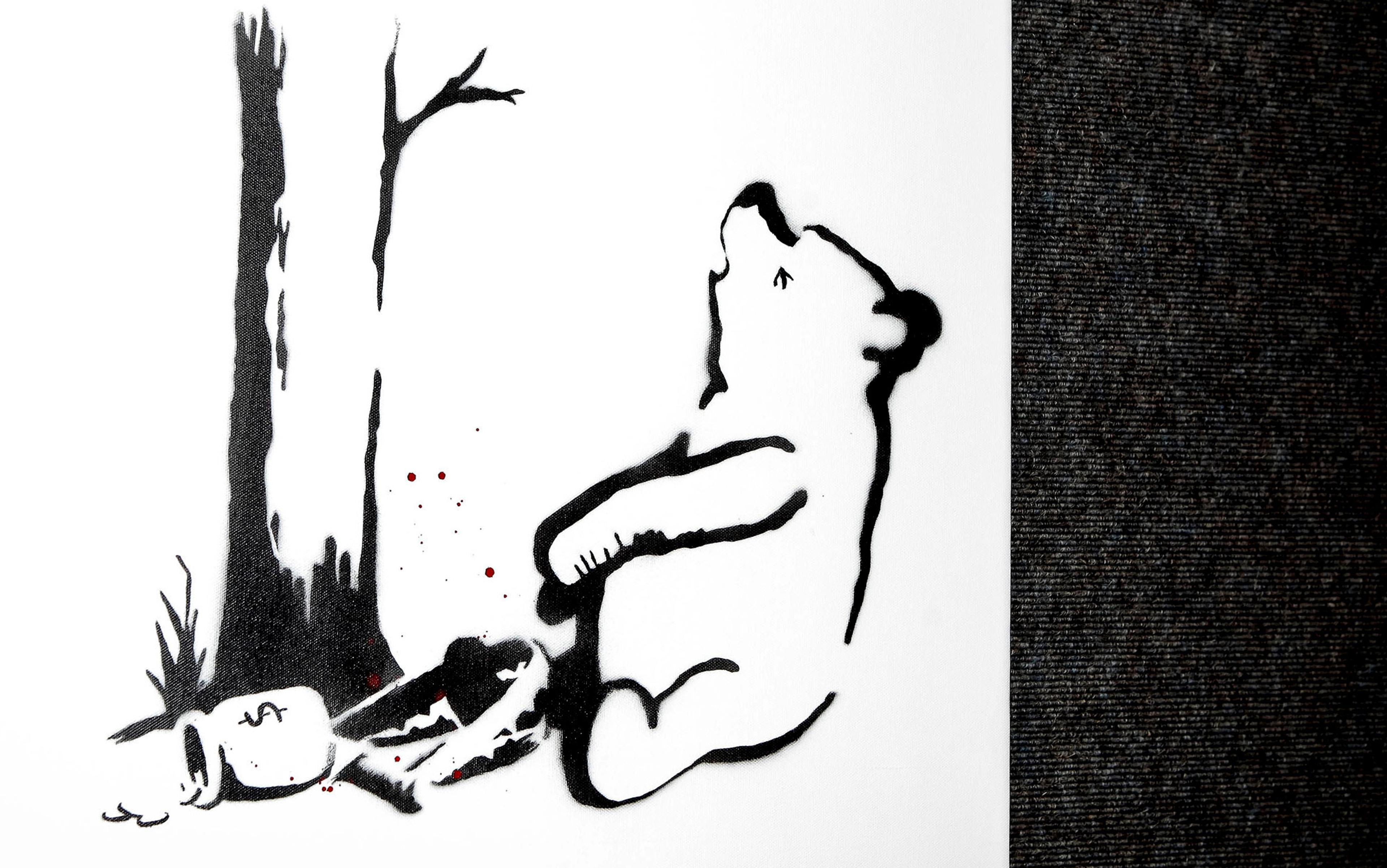Some of us are more susceptible than others, but eventually it happens to us all. You know what I’m talking about: the inability to appreciate new music – or at least, to appreciate new music the way we once did. There’s a lot of disagreement about why exactly this happens, but virtually none about when. Call it a casualty of your 30s, the first sign of a great decline. Recently turned 40, I’ve seen it happen to me – and to a pretty significant extent – but refuse to consider myself defeated until the moment I stop fighting.
I’ve been fighting it for more than 10 years now, with varying degrees of vigour and resolve. Sometimes the fight becomes too much – one tires of the small victories that never break open into anything larger – and the spirit flags. I continually if not consistently stay abreast of what’s deemed the best of the new – particularly in rap and rock and R&B (which I stubbornly and unapologetically refer to, like a true devotee of its 1960s incarnation, as ‘soul’). These ventures into the current and contemporary have reaped dividends so small, they can be recounted – will be recounted – with no trouble at all.
But why should I care? Why should any of us care? Maybe it’s about the fear of becoming what we’ve always loathed: someone reflexively and guiltlessly willing to serve up a load of things-were-better-in-my-day, one of the most facile and benighted of all declarations. If you take pride in regarding yourself as culturally current, always willing to indulge the best of everything wherever it’s found, such taste blockages can be pretty frustrating, even embarrassing. And that hoary old consolation for the erectile dysfunction of the slightly older – ‘It happens to everyone’ – is no consolation at all.
For one thing, it doesn’t happen to everyone. Musicians seem particularly immune, for obvious reasons, and so do certain types of journalists, for reasons touched on in the paragraph above. Still, it’s a very real phenomenon, as real as anything that transpires in the mind. Famously, something similar happens to us with sports, particularly spectator sports, and at a much younger age. But no one really feels too badly about that, because of the inherent meaninglessness of watching other humans engage in physical activity. It’s like ruing the day you ever stopped liking porn. But music is different. Denounce the music of the present day, and you’ve instantly become a walking, talking, (barely) breathing cliché, ripe for ridicule, a classic figure of parody and invective.
It doesn’t happen to everyone, but it could certainly happen to you.
It’s axiomatic in our culture that a sense of wonder is something to be encouraged in others and coveted for ourselves. But a sense of wonder is dependent on an ability to experience surprise, and if as an adult you’re still surprised by certain things, then you haven’t been keeping up the way you should.
Most of us stop responding to new music because we know better. You can read that sentence and its last word any way you want; it’s still going to apply. But even if we don’t know better, per se, we still know just as good, and so we know enough to understand that it’s been done before, whatever this is we’re listening to. All of which is another way of saying: you lose your virginity only once.
This is only compounded by another factor, and it’s something I’ve never seen or heard mentioned in any discussion of this topic. It has to do with the callowness (perceived and real) of musicians younger than ourselves. As something that by its very nature appeals to our emotions, music requires that we be emotionally engaged. This can be a very difficult thing to achieve on behalf of someone who hasn’t endured as much of the world as we have.
Music requires that its consumer not just appreciate adroit execution but take ownership of a sensibility
I’m talking here about music made by those who were younger than us when we first heard them. Anybody who listens to a Beatles song today is listening to a song made by people in their 20s, but we don’t mind – we seldom even notice – because we were younger than that when we first heard the Beatles – or at least, we were younger than the living Beatles were then.
I’m not saying it makes sense, any more than emotions themselves make sense. But there’s no denying their validity. The best music achieves its effects by realising a bittersweet tension – a bit of melancholy touched with exuberance, or vice versa. This requires soul, and something resembling wisdom, and it requires the listener’s complicity, too. More than with any other art form, music requires that its consumer not just appreciate adroit execution but take ownership of a sensibility. I’m not saying it’s impossible with musicians younger than ourselves – it’s happened to me many times. But it’s certainly rare, because for the effect to work – the way it works for me whenever I hear Sleater-Kinney’s Jumpers (2005) or the Decemberists’ Here I Dreamt I Was an Architect (2002), both of which I first encountered well into my 30s – it’s because there are absolutely no weaknesses in the songs’ construction, and because the musicians manage to achieve an old-souled wistfulness and longing that transcend their youth.
More important than any of this is the adult’s safety within his identity. No longer casting about for an anthem, no longer trying on identities like new clothes, the well-adjusted adult is far less likely to succumb to the sound of a musician’s soul, unless it’s a sound that got to him before his ultimate emancipation.
The early-30s solidification of this soul is part of a process begun much earlier, when one is hitting adolescence. In an article headlined ‘Forever Young? In Some Ways, Yes’ (2011) in The New York Times, the cultural historian David Hajdu noticed something shared among a dozen or so legendary musicians then turning 70: they had all ‘turned 14 around 1955 and 1956, when rock ’n’ roll was first erupting’.
He took his hunch and drew it out a little further, with compelling results. Bob Dylan and Paul McCartney both had their heads turned around by Elvis when they were precisely 14 years old; Sidney Bechet, Jimmie Rodgers and Fletcher Henderson – all ‘future innovators of vernacular, cross-racial music’ – were 14 in 1911 when Irving Berlin’s Alexander’s Ragtime Band was released; Billie Holiday and Frank Sinatra turned 14 in 1929, the year Rudy Vallée codified the art of crooning; and Bruce Springsteen, Stevie Wonder, Gene Simmons and Billy Joel turned 14 right around the time that the Beatles played The Ed Sullivan Show in 1964.
It’s simply not realistic to expect someone to respond to music with such life-defining fervour more than once. And it’s not realistic, either, to expect someone comfortable with his personality to be flailing about for new sensibilities to adopt. I’ve always been somewhat suspicious of those who truly do, as the overused phrase has it, listen to everything. Such schizophrenic tastes seem not so much a symptom of well-roundedness as of an unstable sense of self. Liking everything means loving nothing. If you’re so quick to adopt new sentiments and their expression, then how serious were you about the ones you pushed aside to accommodate them?
Oh yeah, and one more thing: music today fucking sucks.
I don’t have the space here or the time in my life to do a thorough survey of the Current State of Popular Music. Probably the person who’s come closer than anyone to pulling off such a grim endeavour is the US journalist John Seabrook, in his book The Song Machine: Inside the Hit Factory (2015). To read its pages is to take a dispiriting tour through the realms of K-pop, boy bands, track-and-hook, songwriters-for-hire, Swedish song machines, pop divas, Auto-Tune, and all the other enthralling phenomena that make up the music of today.
‘This is a new golden age for pop music… the DJ Snake-Justin Bieber collaborations are the way forward’
It should be said that Seabrook does not share this contempt for his own subject. When I email to ask him what exactly he thinks of the latest pop music, he tells me, bluntly: ‘I think the pop songs today are better, and the hip-hop songs are usually better than at any time in the last 20 or 30 years.’ Then he explains this opinion with a remark that many will find unfathomable: ‘That’s mainly because the beats and instrumentation have become so much more interesting with the full embrace of electronic production. Also the vocal-recording technology is so much better – the voice is so much more textured today than ever before.’ He doesn’t stop there: ‘I think actually this is the beginning of a new golden age for pop music, when EDM [electronic dance music] will allow it to realise a new level of sonic complexity. We aren’t quite there yet, but the DJ Snake-J[ustin] B[ieber] collaborations are the way forward.’
I simply can’t follow Seabrook where he’s taking me here. Any assessment of music that concludes with the stated belief that Justin Bieber is ‘the way forward’ is an assessment that’s fundamentally flawed and manifestly ridiculous. But I do agree that rap is probably better than it’s ever been, particularly in the range of topics addressed and in the move away from relying on sampled music.
Although it’s a positive thing that rap is relying less and less on sampled music, I have to acknowledge that sampled music in rap is responsible for much of my musical preference to this day. It first happened in the mid-1980s, when I was eight or nine years old, living on US Army bases in Germany and Massachusetts. Copyright laws hadn’t yet caught up to industry-wide practice, and rap producers were sampling 1970s sounds like shopping-spree contestants pulling merchandise off the shelf: falsetto choruses; chunky wah-wah guitar riffs; over-the-top, funked-out horn arrangements; sneaky, snake-like synthesiser patterns. All of this, naturally enough, made me a hip-hop fanatic, but it also, by the time I finished high school, made me a fanatic for something else: the funk, soul and rock of the 1970s.
I had been alive for only four of the 1970s, and remembered none of them, but that didn’t matter; I embraced this sound as if it were my generation’s own, and in a strange way it was. Most of the people I’d grown up with were content to pluck this music where they found it, but I had to follow it all the way down to its roots. By the time I was in college, I was spending virtually every spare dollar I had on tapes (yes, tapes, on their way out even then, but they never got scratched, and you could get them for a couple dollars less than a CD) by James Brown, Kool & the Gang, Average White Band, the O’Jays, Prince, Curtis Mayfield, Marvin Gaye, Isaac Hayes, Michael Jackson, Parliament-Funkadelic, Barry White.
After I dropped out of college and joined the Navy, I discovered another band that had been spectrally responsible for some of my favourite rap songs – Steely Dan – and they became an obsession that transcended the parameters of mere music. That sound and that sensibility, the entire ethos of bohemian craftsmanship and bittersweet longing, both evoked and explained so compellingly on Deacon Blues (1977) – I saturated myself with this sensibility in San Diego, where I created for myself a culture of reading and writing and seagoing and distance-running and drinking. It was all so poignant and profound a way to spend one’s early 20s. Steely Dan wasn’t just a soundtrack to this lifestyle; they were a catalyst for it. My shipmates were amused by my absolute embrace of a band that (at that point) hadn’t put out an album in 20 years. But their music, to me, was the freshest thing going. Having only recently emerged from a brutal childhood and adolescence that I almost didn’t survive, I can tell you right now as I would have told you then that I’d never felt younger.
I remained indifferent to grunge: even in high school, those bands sounded like little more than pitiful whiners
This was my base, musically, and it remains my base still. But even in those years I spent infatuated with the sounds of the 1970s, I was keeping my ears open to new music. God knows, I was around it all the time – in apartments, college dorms, aircraft-carrier berthings – but little of it managed to move me. When something popped out and really seized my affection, it was usually because the artist either so closely resembled one of my 1970s icons (D’Angelo) or because he so epitomised the lyrical wordplay I’d developed a taste for in childhood (the Notorious B.I.G.). These are both, of course, ways of saying that 1980s hip hop is in a sense what I kept returning to, even when I wasn’t doing so explicitly – throughout my return to college, then grad school, and journalism, right up until the present day.
In high school, I remained indifferent to grunge from the very first chords of Smells Like Teen Spirit (1991) all the way through its run. Even in high school, those bands sounded to me like little more than pitiful whiners. I was into Radiohead – at least until the travesty of Kid A (2000) – and I got on board with the Strokes, the Hives and the White Stripes when those bands momentarily gave rock back its old good name. I’ve always been into classic rock and cool jazz and heavy metal (exemplified by those artists so canonical, it’s pointless to even mention them). I still avidly follow rap, and am a devoted fan of a couple-dozen current rappers, but no new bands interest me other than the Black Keys. Obviously, this is not what you’d call a comprehensive appreciation of current popular music.
You’d think I might have gotten the point by now and given up.
It doesn’t have to happen, not entirely. We all know it. Seabrook knows it. When I ask him if it’s happened to him, he answers categorically and in the negative. ‘I understand this is supposed to happen,’ he adds, ‘but I wonder how much of this is really true. It used to be hard to keep up, so people did give up going to record stores, etc. But now with streaming music there are no more excuses. It’s so easy to hear new music. Spotify’s daily mix makes it as painless as possible.’
Never has it been so easy to keep up, and never has doing so seemed so futile – never has the product seemed so disposable and unworthy of one’s listening time. During the weeks that I was preparing this essay – and at many other times throughout the past couple decades – I’ve been making dutiful, earnest attempts to keep up with the latest, heeding the recommendations of Pitchfork magazine, scanning the Billboard charts, checking off Grammy nominees like items on a to-do list. What it’s yielded has been very little, mostly artists – such as Iron Maiden, Leonard Cohen, A Tribe Called Quest, Megadeth – that I’ve already been fervently listening to for decades, and whom I would have been listening to even without being prompted to do so.
Some pursue new music as if it deserved to be consumed, like vegetables at the dinner table
And really, what more should I expect? The best music in life – like all the best things in life – is that which suggests itself, revealing itself not from the realms of the obligatory and the abstracted, but from the enchanted and unassailable. Even Seabrook – who doesn’t believe ‘there’s anything biologically that compels you to lose interest in new music’ – agrees ‘that when you are young, you feel more passionately about new music [emphasis mine], because your tastes and thus your identity are still forming. So the relationship is more intense’.
I’ve become convinced there’s something a little pathetic in the contrived way some of us pursue new music deep into our 30s and beyond, not really wanting to but feeling like we must, as if music somehow deserved this – deserved to be consumed like vegetables at our mother’s dinner table. All those unapologetic old fogeys willing to take a stand and denounce the music of today have a lot more in common with the youth than someone like me. At least the fogeys are willing to trust their instincts, finding their kicks where they find them, and never minding the places they don’t. As for me, I suspect I’ll keep on in my stubborn suspicion that I just might be missing something, continuing to complete my homework like a diligent little student, even though I probably should have left such kids’ stuff behind a long time ago.






